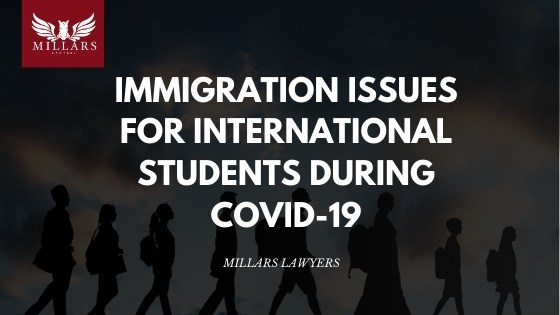Travel restrictions have impacted international students to travel to Canada during COVID-19. However, Starting October 20, 2020, Designated Learning Institutions (DLIs) with a COVID-19 readiness plan approved by their province or territory will be able to reopen to international students who are currently outside Canada. A new list of DLIs with approved COVID-19 readiness plans will be available on or before this date.
If you plan to come to Canada as an international student on or after October 20, 2020, your DLI must be on the list of DLIs with approved COVID-19 readiness plans before you travel to Canada. This change will apply to all international students, whether you’re travelling from the United States or from any other country.
If you’re already in Canada, you can continue studying at any DLI. If you leave Canada, you may not be able to return if your DLI doesn’t have a COVID-19 readiness plan approved by the province or territory you live in.
In order to be able to enter Canada as a student, you must meet 2 requirements:
- You must be travelling for an essential (non-discretionary) purpose.
- You must be 1 of the following:
– An international student with a valid study permit or who was approved for a study permit on or before March 18, 2020
– Travelling directly from the US
Non-discretionary Travel
Your travel to Canada may be considered non-discretionary as a student if:
- You already live in Canada
- You need to be in Canada for your program (for laboratory work, workshops, or similar)
- Your school isn’t offering online study options
- You can’t study online from your home country because of internet restrictions or bandwidth limitations
- You can’t participate in live online classes from your home country because of the difference in time zones
Make sure you have proof that you’re exempt from the travel restrictions and that you’re travelling for a non-optional or non-discretionary purpose.
When the border services officer greets you, they look at several factors, including:
- Your reason for travelling to Canada
- You’re able to complete a 14-day quarantine period as soon as you arrive at your final destination
- if you either:
– Have time to complete your quarantine before you physically attend classes, or
– Can study online during your quarantine
You must bring
- a valid study permit, or
- a port of entry letter of introduction that shows you were approved for a study permit, if you’re coming from the United States, or
- a port of entry letter of introduction that shows you were approved for a study permit on or before March 18, 2020, if you’re coming from any other country
You can continue to work, even if COVID-19 has forced you to become a part-time student or to take a break in your studies, as long as
- you’re registered as a full-time student, and
- your study permit says you’re allowed to work while you study
If you work off-campus, you can work up to 20 hours per week during an academic session. You can work full time during scheduled breaks in the academic year.
If you’re eligible for the post-graduation work permit program, you’ll still be able to get a post-graduation work permit if:
- your in-person classes in Canada have been moved to an online-only format and you had to begin or will continue your classes online because of COVID-19, or
- you had to put your studies on hold or study part-time during the winter, spring or summer 2020 semesters because of COVID-19
If you’re outside of Canada
You’re still eligible for a PGWP if you can’t travel to Canada at this time and
- You have a study permit
- you’ve been approved for a study permit
- you applied for a study permit before starting your study program in the spring, summer or fall 2020 semester, or
- you will apply for a study permit before starting your study program in the January 2021 semester
If you’re in this situation, you can begin your classes while outside Canada.
Please contact Millars Law when you Can’t Afford to Lose. (519) 657-1LAW or info@ml-dev.thirdeyeinsights.ca
By Nasar Iqbal



